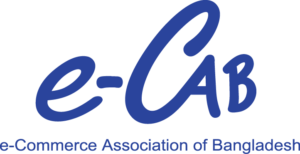Contact Center Service
For a high-quality local and international call center service, several key facilities and features that we ensure for efficiency, customer satisfaction and smooth operations.

Advanced Call Center Software: Use cloud-based or on-premise software that includes Automatic Call Distribution (ACD), Interactive Voice Response (IVR), CRM integration, call recording, and reporting tools.
Unified Communication Systems: Allow seamless communication across channels, such as voice, email, chat, and social media, using a single platform.
High-Quality Headsets and Telephony Equipment: Ensure clear audio and minimize background noise. For international calls, high-quality VoIP (Voice over Internet Protocol) technology is crucial.
Omnichannel Support: Enable handling of calls, emails, chat, and social media interactions simultaneously for a seamless customer experience.
Remote Access Solutions: For flexibility and scalability, provide secure systems that support remote work.

Real-Time Analytics: Monitor call volume, agent performance, customer satisfaction, and other KPIs in real time.
Queue Management Systems: Ensure minimal wait times by balancing call loads among available agents, optimizing response times for both local and international customers.
Agent Scheduling and Forecasting Tools: Efficiently schedule shifts based on expected call volume, and forecast staffing needs to avoid over or understaffing.
Call Monitoring and Quality Assurance (QA) Tools: Regularly evaluate calls for quality, training purposes, and customer experience enhancement.

Comprehensive Agent Training: Regularly train agents on product knowledge, customer service skills, and cultural nuances (especially for international calls).
Cultural Sensitivity Training: For international call centers, understanding cultural differences is essential to prevent misunderstandings and offer personalized support.
Ongoing Learning Programs: Provide agents with ongoing development opportunities and feedback to improve their skills and motivation.

CRM Software: Integrate CRM tools that allow agents to track customer history, personalize interactions, and solve issues efficiently.
Multi-Language Support: For international call centers, offering support in multiple languages can improve service delivery and customer satisfaction.
Customer Data Security: Ensure data protection and compliance with relevant regulations (e.g., GDPR, HIPAA) to maintain trust.

Ergonomic Workstations: Comfortable seating, desks, and equipment (like headsets) to minimize strain and improve agent productivity.
Break Rooms and Rest Areas: To ensure that agents remain refreshed, especially during long shifts.
Employee Engagement: Foster a positive work environment through recognition programs, incentives, and team-building activities.
Health and Safety: Implement necessary health and safety measures to provide a safe working environment, including a clean workspace and ventilation.

Scalability for Growth: The ability to scale quickly with the growth of the business, including the ability to add new agents and expand to new international markets.
Disaster Recovery and Backup Systems: Implement redundancy and backup systems to ensure continuity of service in the event of technical failures or natural disasters.

Self-Service Options: Include options like self-service portals, knowledge bases, and FAQs to reduce the volume of calls and empower customers to find answers quickly.
Interactive Voice Response (IVR): Implement IVR systems that efficiently route calls and provide customers with quick resolutions.
Service Level Agreements (SLAs): Ensure that customer expectations for response times and issue resolution are clear and measurable.
Customer Feedback Systems: After-call surveys, net promoter scores (NPS), or other feedback tools to measure customer satisfaction and identify areas for improvement.

International Dialing and Multi-Country Support: Ensure that call center software can handle calls from different countries, with the ability to recognize and route international calls efficiently.
Time Zone Management: Coordinate shifts based on global time zones, ensuring 24/7 or region-specific coverage.
Local Knowledge and Language Skills: For international centers, hire multilingual agents or use language support technology to serve global customers effectively.

Regulatory Compliance: Adhere to local and international regulations like data privacy laws (e.g., GDPR, CCPA), financial regulations, or industry-specific rules (e.g., HIPAA for healthcare).
Comprehensive Reporting: Track performance metrics such as call resolution time, first call resolution, abandonment rate, and customer satisfaction to ensure service levels are met.

Backup Power Solutions: Ensure that power outages don’t disrupt operations by having backup generators or uninterruptible power supplies (UPS).
Cloud Solutions: Use cloud-based systems to allow remote work options and flexibility in managing operations from anywhere.



